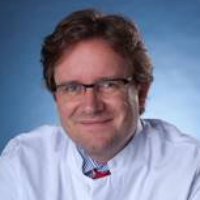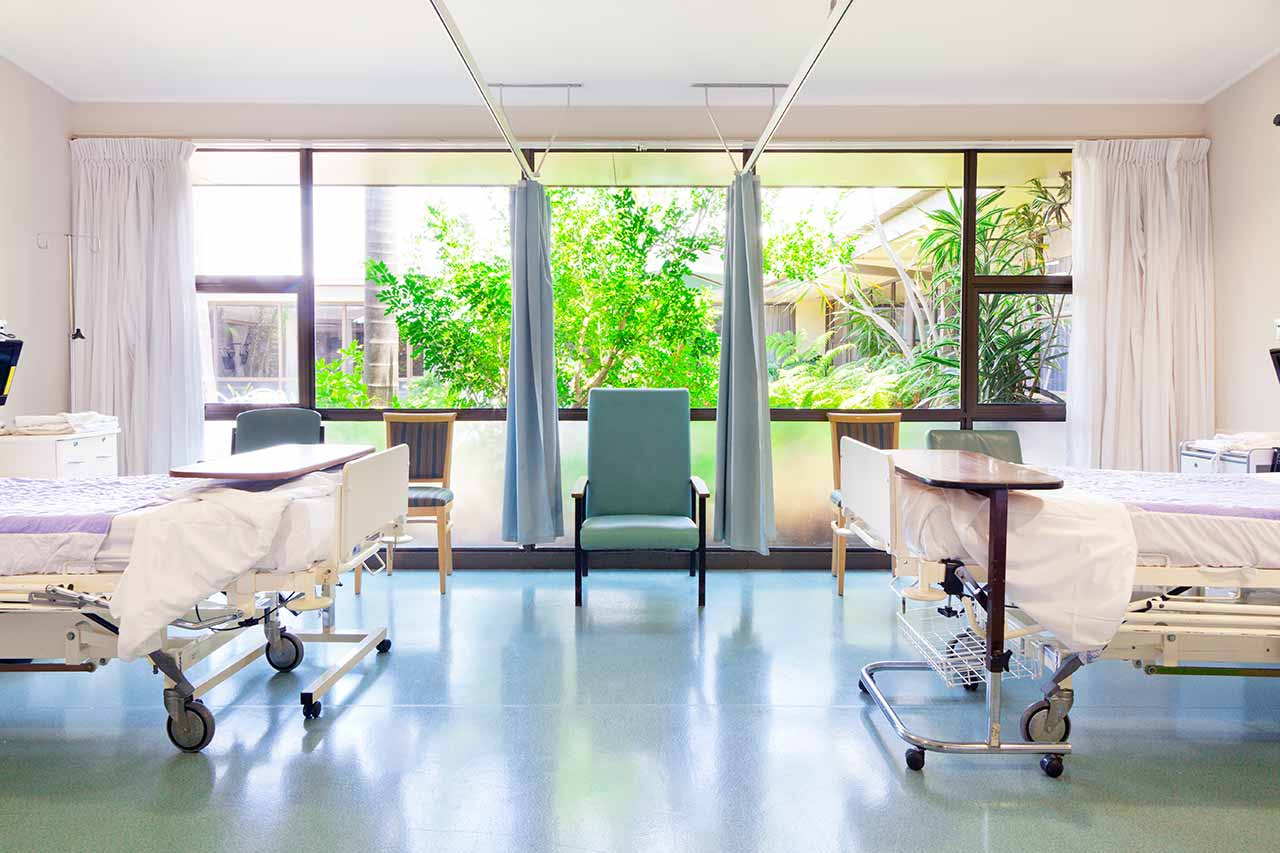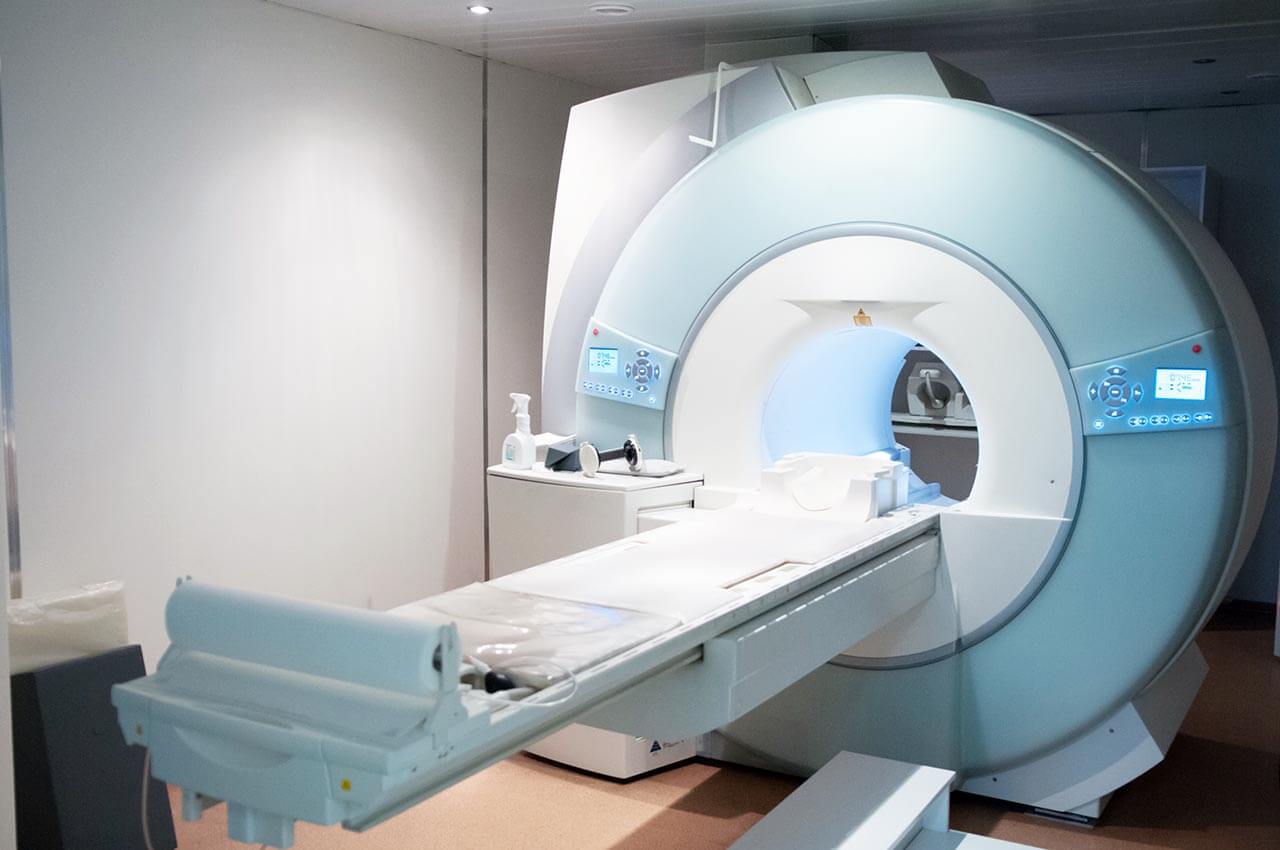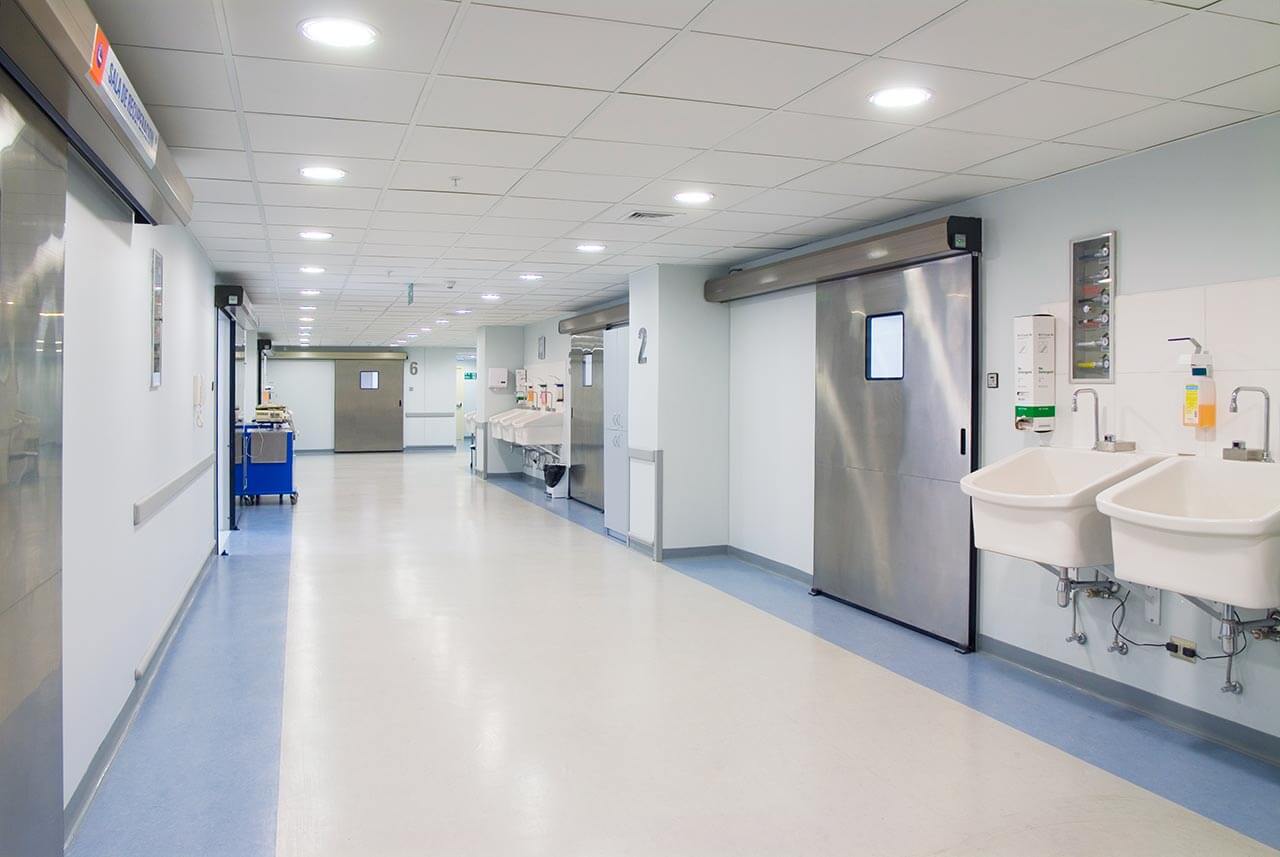
About the Department of Adult and Pediatric Neurosurgery, Spinal Surgery at University Hospital Saarland Homburg
The Department of Adult and Pediatric Neurosurgery, Spinal Surgery at the University Hospital Saarland Homburg offers the full range of services in the surgical treatment of diseases of the central and peripheral nervous system. Of particular interest is the treatment of brain and spinal cord tumors, spinal surgery for herniated discs, spinal stenosis, and degenerative changes in the spine, as well as interventions for neurovascular diseases and hydrocephalus. The doctors have exceptional experience in the surgical treatment of brain tumors, hydrocephalus, craniostenosis, and spina bifida in children. In addition, the department's neurosurgeons brilliantly perform stereotaxic operations on the brain. The department has 69 beds and 4 state-of-the-art operating rooms, including a stereotactic operating room for diagnostic and therapeutic procedures. A competent team of surgeons provides treatment in accordance with the standards and recommendations of the professional societies. The department's neurosurgeons annually admit more than 3,100 inpatients and more than 7,000 outpatients. The specialists not only highly effectively treat diseases of any severity but also make sure that the operation is as sparing and safe as possible. The department is headed by Prof. Dr. med. Joachim Oertel.
Neurosurgery is one of the most complex areas of modern medicine, since operations on the brain and spinal cord are associated with a high risk of complications, including movement disorders, vision loss, hearing disorders, cognitive disorders, etc. The department is one of the best Neurosurgery Centers in Europe in terms of its equipment and the level of professionalism of its surgeons, thanks to which it regularly provides patients with successful and safe treatment. The department has state-of-the-art equipment for the diagnostics of the nervous system and accurate planning of the upcoming operation. In the course of neurosurgical intervention planning, CT and MRI scans, preoperative navigational transcranial magnetic stimulation of the brain, diffusion tensor imaging (MR tractography), and other methods are actively used to determine the extent of the surgical intervention and exclude damage to functionally significant areas of the brain. The safety of surgical procedures is monitored with intraoperative neuronavigation, intraoperative neuromonitoring, and intraoperative cerebral cortex stimulation.
An important role in the department's clinical practice is given to the treatment of patients with brain tumors such as meningiomas, gliomas, posterior fossa tumors, and pituitary tumors. Each case of brain cancer is considered at regular tumor boards, in which not only the department's neurosurgeons but also neurologists, neuroradiologists, oncologists, radiation therapists, and other doctors participate. The specialists cooperatively develop an optimal treatment regimen based on the patient's diagnostic results, his age, general health condition, the presence of concomitant pathologies, and other factors. In most cases, the treatment is based on tumor removal surgery. Meningioma and glioma resection surgery is most often performed with microsurgical techniques and under the guidance of neuronavigation and intraoperative monitoring. After meningioma surgery removal, a patient is often given radiation therapy and/or chemotherapy.
The department's doctors have rich experience in stereotactic procedures. The technique is used to perform a stereotaxic biopsy and deep brain stimulation in patients with certain movement disorders (essential tremor and movement disorders due to Parkinson's disease), severe pain syndrome, focal forms of epilepsy, and dystonia. Deep brain stimulation is a surgical intervention during which electrodes are implanted into the deep structures of the brain to suppress its pathological activity with the help of electrical impulses. This neurosurgical intervention is planned based on MRI scans. Deep brain stimulation is a highly effective treatment method that causes virtually no complications.
The department's surgical options are complemented by the treatment of neurovascular pathologies. Of particular interest to the department's team of doctors is the treatment of brain aneurysms, cavernomas, arteriovenous malformations, arteriovenous fistulas, and occlusions and stenoses of the cerebral blood vessels caused by moyamoya disease. The department's neurosurgeons successfully perform coiling and clipping on patients with brain aneurysms, cavernoma removal surgery, interventional endovascular procedures to close arteriovenous malformations and arteriovenous fistulas, and other interventions.
An integral part of the department's work is the provision of medical care to patients with spinal diseases. The medical facility most often admits patients with spinal disc herniation, spinal stenosis, spinal instability caused by degenerative processes, traumatic spinal injuries, inflammatory spinal diseases, and spinal cord and spinal canal tumors. Spinal disc herniation can be managed with both conservative and surgical treatment methods. At the early stages of the pathological process, pain management and physiotherapy procedures are sufficient, while more complex clinical cases require prosthetic repair of the affected intervertebral discs. It is worth noting that the department's specialists use minimally invasive and endoscopic techniques. Resection is the main treatment method for spine and spinal cord tumors, such as meningiomas, neurinomas, ependymomas, and astrocytomas. Whenever possible, resection surgery is performed with the use of minimally invasive techniques. Depending on the type of tumor, chemotherapy, radiation therapy, or other conservative treatment methods may be required after surgery.
The department's team of neurosurgeons has been treating nervous system diseases in children for many years. The specialists have unique professional skills in neurosurgical interventions for brain tumors, hydrocephalus, craniostenosis, and spina bifida. The most common brain neoplasms in young patients include pilocytic astrocytomas, medulloblastomas, ependymomas, and acoustic neuromas. Computed tomography of the brain is of particular value for diagnosis. As for the treatment, surgery to resect the neoplasm is usually inevitable. The department's specialists are increasingly using an innovative approach to the surgical removal of brain tumors in children, namely endoscopy-guided microsurgery. Such interventions provide the department's neurosurgeons with an excellent overview of the surgical field and its best possible illumination and minimal trauma. Treatment regimens for children like those used for brain cancer treatment in adults often include chemotherapy and radiation therapy.
The department's range of surgical options includes:
- Neurosurgical interventions in adults
- Surgical treatment of brain tumors
- Microsurgery for meningiomas
- Microsurgery for gliomas
- Endoscopy-guided microsurgery for posterior fossa tumors
- Endonasal minimally invasive surgery for pituitary adenomas, craniopharyngiomas, chordomas, Rathke's cleft cyst, and other neoplasms
- Surgical treatment of neurovascular diseases
- Coiling and clipping for brain aneurysms
- Surgical removal of cavernomas
- Interventional endovascular procedures for arteriovenous malformation and arteriovenous fistula closure
- High flow extra-intracranial bypass for moyamoya disease
- Surgical treatment of hydrocephalus
- Ventriculoperitoneal shunting
- Endoscopic third ventriculostomy
- Surgical treatment of peripheral nerve diseases
- Open and endoscopic surgery for carpal tunnel syndrome
- Decompression surgery and minimally invasive endoscopy-guided interventions for cubital tunnel syndrome
- Endoscopic surgery for Guyon's canal syndrome
- Endoscopic surgery for Morton's neuroma
- Stereotactic surgery
- Stereotactic biopsy for suspected brain tumors
- Deep brain stimulation for essential tremor, movement disorders caused by Parkinson's disease, pain syndromes, focal forms of epilepsy, and dystonia
- Surgical treatment of brain tumors
- Neurosurgical interventions in children
- Surgery for brain tumors
- Endoscopy-guided microsurgical interventions for pilocytic astrocytomas, medulloblastomas, ependymomas, and acoustic neuromas
- Surgery for hydrocephalus
- Ventriculoperitoneal shunting
- Endoscopic third ventriculostomy
- Surgery for craniosynostosis
- Open and endoscopic surgical procedures
- Surgery for spina bifida occulta and spina bifida aperta
- Surgery for brain tumors
- Surgical interventions on the spine
- Intervertebral disc replacement for spinal disc herniation: minimally invasive and endoscopic techniques
- Decompression and decompression stabilization operations for spinal stenosis, including with endoscopic techniques
- Stabilizing interventions for spinal instability caused by degenerative changes
- Surgery for traumatic injuries and inflammatory processes in the spine
- Surgery for spinal cord and spinal canal tumors
- Other medical services
Curriculum vitae
Prof. Dr. med. Joachim Oertel began his career in 1989 with studying medicine at the Hannover Medical School and at the Harvard Medical School in Boston. After receiving his doctor’s degree, he began working at the Neurosurgical Clinic at the Ernst Moritz Arndt University. After board certification and habilitation at the Hannover Medical School, in 2006 he took the position of the Managing Senior Physician at the City Hospital Nordstadtkrankenhaus, Hannover. Since October 2008, he held the position of the Managing Senior Physician in the Department of Neurosurgery at the University Hospital Mainz. On December 1, 2010, Prof. Dr. med. Joachim Oertel was appointed as a Full Professor and Head of the Department of Adult and Pediatric Neurosurgery, Spinal Surgery at the University Hospital Saarland Homburg.
Photo of the doctor: (c) Universitätsklinikum des Saarlandes





